Category Archives: South Atlantic
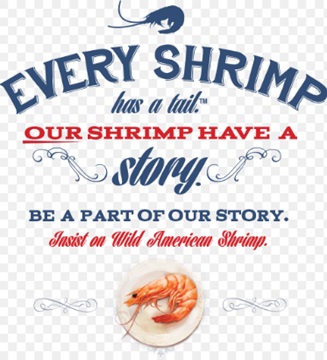
American Shrimp Processors Association Launches Trade Petitions Addressing Unfair Dumping and Illegal Subsidies
Today, the American Shrimp Processors Association (ASPA) filed trade petitions seeking antidumping duties on imported frozen warmwater shrimp from Ecuador and Indonesia and countervailing duties on imported shrimp from Ecuador, India, Indonesia, and Vietnam. The U.S. shrimp market has been overwhelmed by massive quantities of underpriced shrimp imports, resulting in unsustainably low dockside prices, falling domestic market share, significantly lower profit margins, and historically high inventory levels. >>click to read<< 07:56
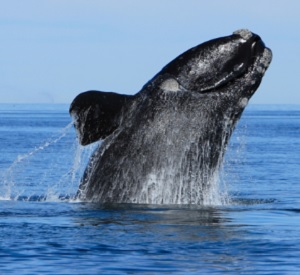
North Atlantic right whale population has steadied, scientists say
The population of critically endangered North Atlantic right whales appears to have levelled off after a decade of steep decline, according to updated data released this morning by Canadian and American scientists. Every fall, the North Atlantic Right Whale Consortium releases its best population estimate of the world’s most threatened large whale. Scientists in the consortium said Monday that the 2021 estimate of 340 North Atlantic right whales in existence has been recalculated to 365 primarily because of the number of calves born that year. The estimate for 2022 is 356. >>click to read<< 09:52
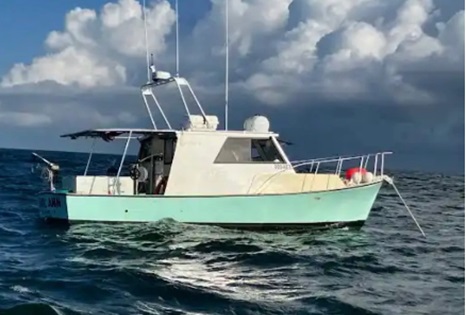
Coast Guard searching for overdue fishing vessel 80 miles off Brunswick, Georgia
The Coast Guard is searching for an overdue 31-foot fishing vessel, Friday, 80 miles offshore Brunswick, Georgia. Coast Guard Sector Charleston watchstanders received a report from the owner of the fishing vessel Carol Anne stating he hired a crew of three people that failed to return on Wednesday as scheduled. The owner stated the crew extends fishing trips to maximize their catch but was growing concerned due to their last communication with the crew being six days ago. >>click to read<< 20:05

Offshore Wind Is A Dangerous Pipe Dream Costing Taxpayers Billions
How many times have we heard that wind power, coupled with the sun’s energy, is going to save us from our fossil-fuel-burning ways? Maybe one day it will. But at no time soon will it happen. And by soon, we mean in most of our lifetimes. How can we say this? Look around at what’s happening with wind energy [emphasis, “California’s Central Coast residents work to stop — or at least slow down — offshore wind.”,,, “Orsted Threatens To Abandon U.S. Offshore Wind Projects.” Biden administration guarantees more support.,, “Electricity from wind isn’t cheap and it never will be.” The list above is no more than a start. There are many more stories we could have cited, and there are many more to come. Wind energy is unreliable, and its costs are not competitive at scale. Lots of links! >>click to read<< 18:22
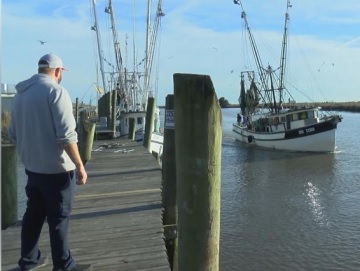
McIntosh County commissioners pass resolution to support local shrimpers
The McIntosh County Board of Commissioners passed a resolution to seek protection for the shrimping industry at a special called meeting on Thursday. The resolution states that an increase of imported shrimp in the United States have “continued to decimate the local shrimping industry’s ability to market and sell wild caught domestic shrimp.” The resolution passed unanimously during Thursday’s meeting. Local leaders hope the more cities and counties that jump on board with similar resolutions, the closer they’ll get to grabbing the attention of Congress and the federal government. >>click to read<< 16:48
Lowcountry shrimpers say area restaurants buying shrimp from other countries is putting a strain on the industry
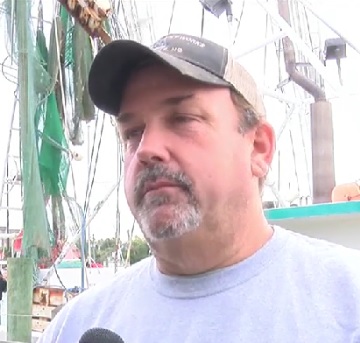 Lowcountry shrimpers are concerned that they are going to be priced out by imported shrimp. But there’s one local organization working to promote eating locally. The South Carolina Shrimper’s Association has multiple goals such as advocating for policies that support the shrimping industry, educating the public about the industry, and promoting sustainable shrimping. One of the biggest problems Lowcountry shrimpers are facing right now is local restaurants importing the shrimp. They say some restaurants import shrimp from other countries at extremely low prices that local shrimpers just can’t afford to beat – and it’s impacting their livelihood. Video, “It’s been happening for a long time now, but it’s gotten to where it’s getting out of hand,” said local shrimper Rocky Magwood. >>click to read<< 13:03
Lowcountry shrimpers are concerned that they are going to be priced out by imported shrimp. But there’s one local organization working to promote eating locally. The South Carolina Shrimper’s Association has multiple goals such as advocating for policies that support the shrimping industry, educating the public about the industry, and promoting sustainable shrimping. One of the biggest problems Lowcountry shrimpers are facing right now is local restaurants importing the shrimp. They say some restaurants import shrimp from other countries at extremely low prices that local shrimpers just can’t afford to beat – and it’s impacting their livelihood. Video, “It’s been happening for a long time now, but it’s gotten to where it’s getting out of hand,” said local shrimper Rocky Magwood. >>click to read<< 13:03
Athearn Marine Agency Boat of the Week: 72′ Steel Shrimp Dragger, 500H Cummins K-19 Diesel
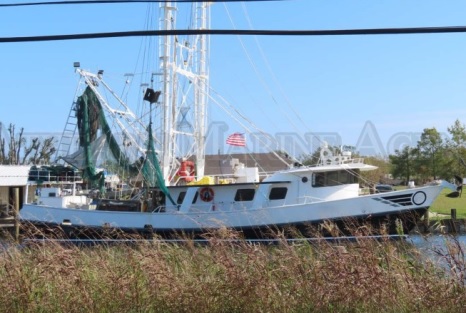 To review specifications, information, and 28 photos’, >click here<, To see all the boats in this series, >click here< 11:35
To review specifications, information, and 28 photos’, >click here<, To see all the boats in this series, >click here< 11:35

S.C. Shrimpers Association asks public’s help in fighting imported shrimp crisis
The South Carolina Shrimpers Association has announced its new leadership team for the 2023-2025 term. This comes after an emergency meeting was called to address the imported shrimp crisis and elect leaders to navigate the challenges faced by local shrimpers. The newly elected leadership team will shoulder the responsibility of representing the interests of South Carolina shrimpers at both state and federal levels. Their primary focus is on promoting the sustainability of the shrimping industry in the region, particularly in the face of the imported shrimp crisis. Video, >>click to read<< 09:21
Commercial fleet owner Julius Leroy Whorton of North Crolina has passed away
 Julius Leroy Whorton, 84, passed away peacefully surrounded by his family and friends on Monday, Oct. 9, 2023. Leroy, as he was known, was born in South Creek, North Carolina. on March 31, 1939, to the late Clara Myrtice Mayo Whorton and the late Julius Timothy Whorton. He was also preceded in death by his brother, Daniel Atwood Whorton. Leroy graduated from New Bern High School in New Bern, North Carolina, Georgia Military College and received scholarships to play football for Wake Forest and University of Georgia. After college, Leroy built his career in the seafood industry with a fleet of commercial fishing boats, working the oceans from Alaska to Texas, Key West to Virginia, and North Carolina to Nova Scotia. >>click to read<< 10:54
Julius Leroy Whorton, 84, passed away peacefully surrounded by his family and friends on Monday, Oct. 9, 2023. Leroy, as he was known, was born in South Creek, North Carolina. on March 31, 1939, to the late Clara Myrtice Mayo Whorton and the late Julius Timothy Whorton. He was also preceded in death by his brother, Daniel Atwood Whorton. Leroy graduated from New Bern High School in New Bern, North Carolina, Georgia Military College and received scholarships to play football for Wake Forest and University of Georgia. After college, Leroy built his career in the seafood industry with a fleet of commercial fishing boats, working the oceans from Alaska to Texas, Key West to Virginia, and North Carolina to Nova Scotia. >>click to read<< 10:54
Louisiana elected officials seek to protect local fishermen from imported shrimp
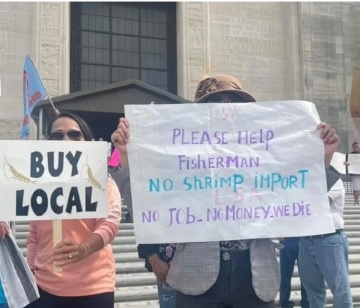 Louisiana elected officials are rallying to find solutions to help protect the state’s shrimp fishermen from cheap foreign shrimp that critics say is depriving shrimpers of their livelihood and undermining public health. Last month, the state Legislature’s Seafood Safety Task Force met to consider ways to stem the influx of shrimp from China and other nations amid concerns that the imported seafood may contain impurities that pose risks to the health of Louisianans. In addition, Gov. John Bel Edwards has requested that the U.S. secretary of commerce declare an emergency disaster declaration to provide assistance to shrimp fishermen. The Florida-based Southern Shrimp Alliance is also urging governors of Gulf and southeastern states to request federal relief funds for shrimpers. >>click to read<< 07:29
Louisiana elected officials are rallying to find solutions to help protect the state’s shrimp fishermen from cheap foreign shrimp that critics say is depriving shrimpers of their livelihood and undermining public health. Last month, the state Legislature’s Seafood Safety Task Force met to consider ways to stem the influx of shrimp from China and other nations amid concerns that the imported seafood may contain impurities that pose risks to the health of Louisianans. In addition, Gov. John Bel Edwards has requested that the U.S. secretary of commerce declare an emergency disaster declaration to provide assistance to shrimp fishermen. The Florida-based Southern Shrimp Alliance is also urging governors of Gulf and southeastern states to request federal relief funds for shrimpers. >>click to read<< 07:29

How Shark Meat Is Prepared In US Restaurants
Shark meat is not one of those things we instinctively think of as being good eating. However, like any other kind of athletic fish, shark offers an excellent amount of flavorful, high-protein meat for consumption. Though it is eaten the world over, in the United States it often comes bearing a different name. Though it is prepared in a number of different ways, chances are that, if you’re eating out, you won’t have any idea that there is a shark on your plate. Though it varies between species, shark meat generally has a very meaty texture and is quite mildly flavored. It is therefore easy for shark to substitute for other types of fish. For example, shark is often used to make fish and chips. >>click to read<< 09:38
Athearn Marine Agency Boat of the Week: 73′ Steel Shrimper, 3406 Cat Diesel
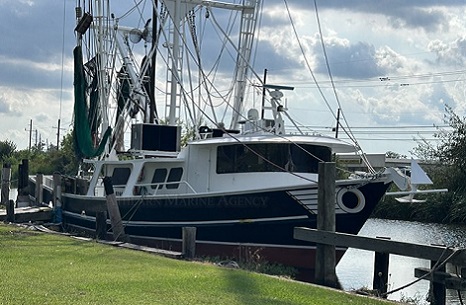 To review specifications, information, and 9 photos’, >click here<, To see all the boats in this series >click here< 10″31
To review specifications, information, and 9 photos’, >click here<, To see all the boats in this series >click here< 10″31

U.S. offshore wind plans are utterly collapsing
Offshore wind developer Ørsted has delayed its New Jersey Ocean Wind 1 project to 2026. Previously, the company had announced construction of the project would begin in October 2023. The delay was attributed to supply chain issues, higher interest rates, and a failure so far to garner enough tax credits from the federal government. For now, they are not walking away from all their U.S. projects but will reconsider long-term plans by the end of this year. Ørsted’s stock price has fallen 30% in 5 days. This is just the latest bad news for offshore win. >>click to read<<10:57
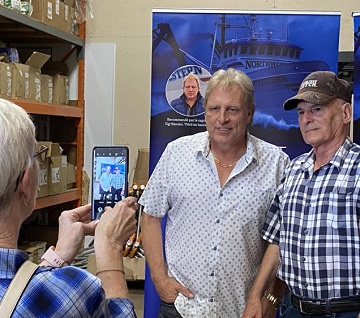
Deadliest Catch star visits Pictou to promote technology combatting ghost fishing gear
Any fisherman understands that keeping the waters clean will help ensure a viable future for the industry. “If you want a future, you have to invest in that future,” said Capt. Sig Hansen from Discovery Channel’s The Deadliest Catch. “So why not try to keep our oceans clean? That’s our responsibility.” Hansen has partnered with Resqunit (pronounced “rescue unit”), lending his star power to an endeavor they hope will assist in helping to protect the environment in which fishermen and women ply their trade. The Resqunit is a lost gear retrieval unit that can be attached to a line of traps, in case a fisher loses a buoy because of storms, accidents or by other means. It includes a user-controlled timer release that is set by using on an app on your phone. If needed, the unit will deploy after a set length of time, rise to the surface and allow fishers to retrieve their traps. >>click to read<< 14:04
Beaufort’s shrimping industry on the brink. Local boats sit while imported catch floods market
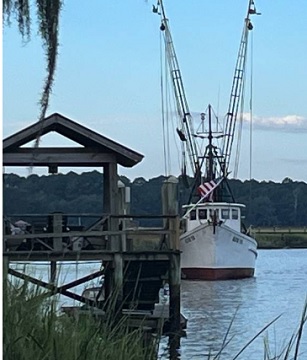 Thursday at Village Creek on St. Helena Island was another picture postcard-worthy morning with an American flag lilting in a slight southeast breeze near the shrimper Gracie Bell — idly tied to the dock. At Sea Eagle Market, a catch of shrimp swept up in the nets of trawlers in recent days are being processed by small group of dockside workers. They clean the valuable seafood crop harvested from waters as far away as North Carolina to the northeast coast of Florida before being sold locally and up and down the Palmetto State’s coast. After this recent harvest was completed, the boats returned, as they always do — to Village Creek, home base for shrimping on Fripp and Hunting Islands in Beaufort County and beyond. Against this serene backdrop, a storm is brewing that threatens destruction. It is not the threat of foul weather, these shrimpers have seen generations of bad weather days. The storm brewing is economic for the community of shrimpers and related businesses. >click to read< 10:10
Thursday at Village Creek on St. Helena Island was another picture postcard-worthy morning with an American flag lilting in a slight southeast breeze near the shrimper Gracie Bell — idly tied to the dock. At Sea Eagle Market, a catch of shrimp swept up in the nets of trawlers in recent days are being processed by small group of dockside workers. They clean the valuable seafood crop harvested from waters as far away as North Carolina to the northeast coast of Florida before being sold locally and up and down the Palmetto State’s coast. After this recent harvest was completed, the boats returned, as they always do — to Village Creek, home base for shrimping on Fripp and Hunting Islands in Beaufort County and beyond. Against this serene backdrop, a storm is brewing that threatens destruction. It is not the threat of foul weather, these shrimpers have seen generations of bad weather days. The storm brewing is economic for the community of shrimpers and related businesses. >click to read< 10:10

Biden-Harris Administration Announces $82 Million For Endangered North Atlantic Right Whales
Today, the Department of Commerce and NOAA announced next steps to conserve and recover endangered North Atlantic right whales with $82 million in funding from the Inflation Reduction Act — the largest climate and conservation investment in history. This announcement comes during Climate Week and is part of the $2.6 billion framework to invest in coastal resilience that NOAA announced earlier this year. North Atlantic right whales are approaching extinction with fewer than 350 individuals remaining, including fewer than 70 reproductively active females. Today’s funding provides an unprecedented opportunity to address the primary threats to the species — entanglements in fishing gear and vessel strikes — with new technologies and approaches. >>click to read<< 12:41
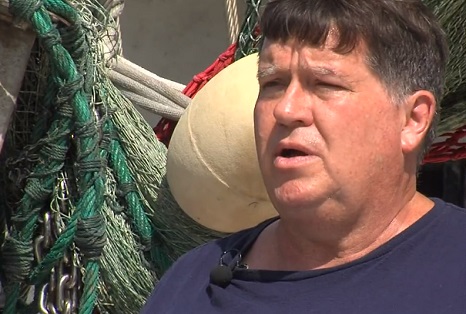
‘A Gulf and National Issue’: Southeast Texas shrimpers struggling to survive due to influx of imported shrimp
With an an influx of imported shrimp taking over the market, it’s becoming tougher for Southeast Texas shrimpers to survive. Since July 16, the Texas waters opened back up for fishing, but Eric Kyle Kimball’s boat “The Seahorse” has yet to leave the dock at the Sabine Pass Port Authority. Kimball is a third generation fisherman who’s been around the industry for 55 years. This career help provides for him and his family, with brown shrimp being the main source of income. Shrimp imported from across the globe are driving prices down from $3.75 per pound in the 80’s to 95 cents per pound, currently. After paying for fuel and deck hands, area fisherman can’t break even. Video, >>click to read<< 09:49
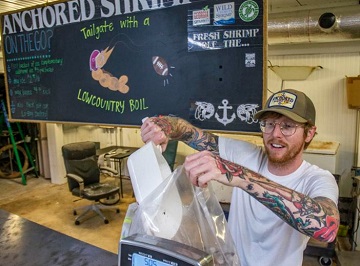
Shrimp Alliance request fisheries disaster declaration
There’s no other way to put it if you ask Aaron Wallace. Despite a decent catch by the eight shrimp boats that supply Anchored Shrimp Co. in Brunswick, the prices fishermen are getting for their hauls aren’t what they should be. “It’s been one of our toughest years,” Wallace said. He and his father, John Wallace, own Anchored Shrimp and operate the Gale Force, one of the boats that serve the company’s retail and wholesale business. The Southern Shrimp Alliance, for which John Wallace serves as a member of the board of directors, is calling the flood of imported shrimp a crisis. The alliance asked the governors of Alabama, Florida, Georgia, Louisiana, Mississippi, North Carolina, South Carolina and Texas in a letter on Aug. 25 to collectively request a fisheries disaster determination by the U.S. Secretary of Commerce for the U.S. shrimp fishery. >>click to read<< 11:06
Petition: Stop Imported Seafood, Save Our Local Fishermen and Seafood Industry!
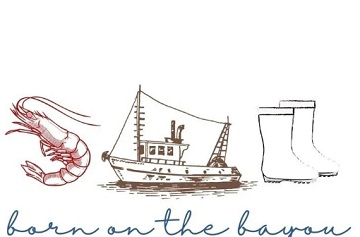 As a concerned citizen, I am deeply troubled by the detrimental impact of imported foreign seafood on our local fishermen and seafood industry. It is disheartening to witness the decline in our local seafood prices and the subsequent struggles faced by our hardworking fishermen. This petition aims to raise awareness about this issue and urge relevant authorities to take immediate action. Growing imports of foreign seafood have flooded our markets, causing a significant drop in demand for locally caught fish. This has resulted in devastating consequences for our local fishermen who rely on their catch as their primary source of income. In the 1980s, shrimpers were receiving close to $7 per pound at the dock; however, today they are barely earning $.80 per pound. >>click to read and sign the petition<< 10:41
As a concerned citizen, I am deeply troubled by the detrimental impact of imported foreign seafood on our local fishermen and seafood industry. It is disheartening to witness the decline in our local seafood prices and the subsequent struggles faced by our hardworking fishermen. This petition aims to raise awareness about this issue and urge relevant authorities to take immediate action. Growing imports of foreign seafood have flooded our markets, causing a significant drop in demand for locally caught fish. This has resulted in devastating consequences for our local fishermen who rely on their catch as their primary source of income. In the 1980s, shrimpers were receiving close to $7 per pound at the dock; however, today they are barely earning $.80 per pound. >>click to read and sign the petition<< 10:41
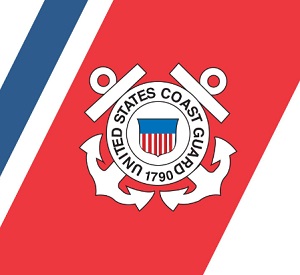
Coast Guard establishes Area Command Post ahead of Tropical Storm Idalia
The Seventh Coast Guard District has established an Area Command Post in advance of Tropical Storm Idalia, Monday, at Coast Guard Air Station Miami in Opa Locka, Florida. For information and interviews relating to the Coast Guard’s preparations and response to Tropical Storm Idalia, please contact the Joint Information Center at 954-546-4979 or by email >>here<< Updated Port Condition changes by the Captain of the Port will be available on the Homeport website and announced on official unit social media pages throughout the Seventh District. Check below for your local Coast Guard Sector page: >>click to read<< 19:00
Port Royal begins rebuilding 30-year-old dock. Move shows renewed commitment to shrimping
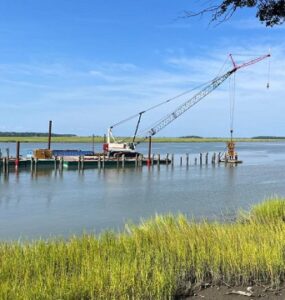 O’Quinn Marine Construction, hired by the town for $130,000, is now tearing down the Battery Creek landmark, piling by piling and plank by plank. But the scuttling of dock isn’t the end but rather a new beginning for shrimping and fishing and seafood processing, which have deep roots in northern Beaufort County. “It’s a first of several steps to reestablish fishing and shrimping as a iconic industry in Port Royal,” Van Willis, the town’s manager, said of the dock removal. A new dock and processing facility for fisherman and shrimpers are now being planned to replace the old facilities that had been in place since 1989. Over the past two years, the State Legislature has allocated the town $2 million for the work. Video, >click to read< 08:57
O’Quinn Marine Construction, hired by the town for $130,000, is now tearing down the Battery Creek landmark, piling by piling and plank by plank. But the scuttling of dock isn’t the end but rather a new beginning for shrimping and fishing and seafood processing, which have deep roots in northern Beaufort County. “It’s a first of several steps to reestablish fishing and shrimping as a iconic industry in Port Royal,” Van Willis, the town’s manager, said of the dock removal. A new dock and processing facility for fisherman and shrimpers are now being planned to replace the old facilities that had been in place since 1989. Over the past two years, the State Legislature has allocated the town $2 million for the work. Video, >click to read< 08:57
Imported shrimp eaten in U.S. may not be safe – U.S. Rep. Castor wants to do something about it
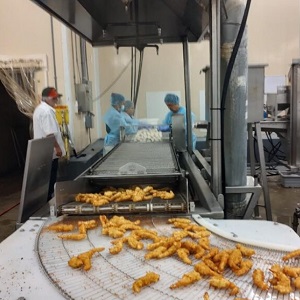 With inventories of shrimp sitting at docks throughout the Gulf Coast due to an abundance of imported seafood, the shrimp industry and U.S. Rep. Kathy Castor of Florida want to increase the purchase of domestic shrimp in the United States and provide more federal funding to regulate imported shrimp for consumers. John Williams is the executive director of the Southern Shrimp Alliance, which represents members of the shrimp industry from Texas through North Carolina. He said a lot of his members that are suffering right now. Castor’s bill, the Laws Ensuring Safe Shrimp Act (LESS Act) would address that issue by vastly increasing funding for the FDA to do inspections of foreign produced shrimp. >click to read< 16:07
With inventories of shrimp sitting at docks throughout the Gulf Coast due to an abundance of imported seafood, the shrimp industry and U.S. Rep. Kathy Castor of Florida want to increase the purchase of domestic shrimp in the United States and provide more federal funding to regulate imported shrimp for consumers. John Williams is the executive director of the Southern Shrimp Alliance, which represents members of the shrimp industry from Texas through North Carolina. He said a lot of his members that are suffering right now. Castor’s bill, the Laws Ensuring Safe Shrimp Act (LESS Act) would address that issue by vastly increasing funding for the FDA to do inspections of foreign produced shrimp. >click to read< 16:07
Fourth Circuit Limits Reach of Federal Regulation Under the “Major Questions” Doctrine as it Relieves Shrimp Trawlers from Clean Water Act Permitting
 The Clean Water Act (“CWA”) regulates the discharge of certain “pollutants” into waters of the United States (“WOTUS”). Should shrimp trawlers be subject to the regulatory framework under the CWA when they return “bycatch” (unintentionally captured marine life) back into a water of the United States, or when their trawl nets churn up rocks and sand on the ocean floor? Not in the Fourth Circuit, as the United States Court of Appeals recently held in North Carolina Coastal Fisheries Reform Group v. Capt. Gaston LLC. This is perhaps an unsurprising conclusion. The CWA is, after all, intended to regulate point-source pollution discharges into WOTUS—and, therefore, to regulate pollution and discharges. The U.S. Environmental Protection Agency (“EPA”) defines point source pollution as “any single identifiable source of pollution from which pollutants are discharged, such as a pipe, ship or factory smokestack.” >click to read< 10:46
The Clean Water Act (“CWA”) regulates the discharge of certain “pollutants” into waters of the United States (“WOTUS”). Should shrimp trawlers be subject to the regulatory framework under the CWA when they return “bycatch” (unintentionally captured marine life) back into a water of the United States, or when their trawl nets churn up rocks and sand on the ocean floor? Not in the Fourth Circuit, as the United States Court of Appeals recently held in North Carolina Coastal Fisheries Reform Group v. Capt. Gaston LLC. This is perhaps an unsurprising conclusion. The CWA is, after all, intended to regulate point-source pollution discharges into WOTUS—and, therefore, to regulate pollution and discharges. The U.S. Environmental Protection Agency (“EPA”) defines point source pollution as “any single identifiable source of pollution from which pollutants are discharged, such as a pipe, ship or factory smokestack.” >click to read< 10:46
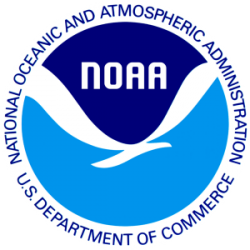
NOAA outlines sweeping plan to boost the nation’s seafood industry
The National Oceanic and Atmospheric Administration has released a sweeping five-year plan to prioritize and promote the country’s commercial fishing industry. NOAA Fisheries announced its National Seafood Strategy on Wednesday. The agency said in a press release that the plan will “outline the direction” of the country’s seafood sector. It’s the first time NOAA has released an overall strategy aimed at addressing industry needs – the agency says it will complement other federal policies that are already in place. >click to read< 11:29
Louisiana shrimpers, lawmakers unite to protect domestic fisheries as season begins
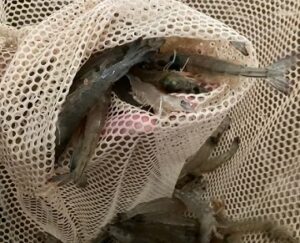 The Louisiana Shrimp Association joined in a letter that said the influx of imported shrimp has proven especially problematic for domestic harvesters. Nineteen other allied organizations and companies, representing more than 4,000 seafood businesses of the U.S. Gulf of Mexico and South Atlantic region also signed onto the letter. “Despite rising costs for fuel and labor, the price of Gulf shrimp, for example, has not increased since 1980. For the past 40 years, the average dockside price of Gulf shrimp has ranged from $1.50-$2.00 per 2 pounds,” the letter said. The Louisiana Legislature on June 6 presented House Concurrent Resolution 113 to the Secretary of State. The resolution urges Congress to ban the import of shrimp and crawfish from outside the United States. >click to read< 11:24
The Louisiana Shrimp Association joined in a letter that said the influx of imported shrimp has proven especially problematic for domestic harvesters. Nineteen other allied organizations and companies, representing more than 4,000 seafood businesses of the U.S. Gulf of Mexico and South Atlantic region also signed onto the letter. “Despite rising costs for fuel and labor, the price of Gulf shrimp, for example, has not increased since 1980. For the past 40 years, the average dockside price of Gulf shrimp has ranged from $1.50-$2.00 per 2 pounds,” the letter said. The Louisiana Legislature on June 6 presented House Concurrent Resolution 113 to the Secretary of State. The resolution urges Congress to ban the import of shrimp and crawfish from outside the United States. >click to read< 11:24






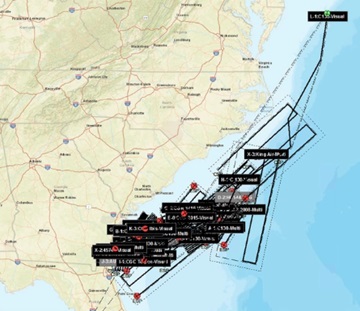
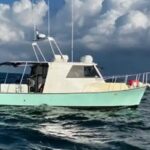

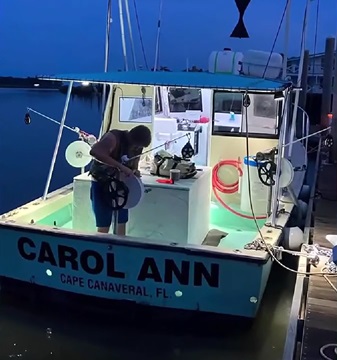



























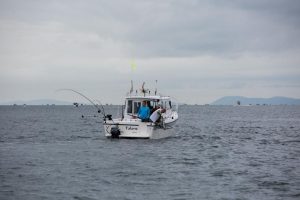
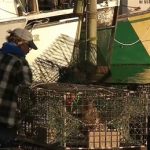

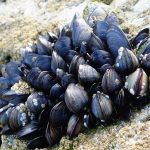
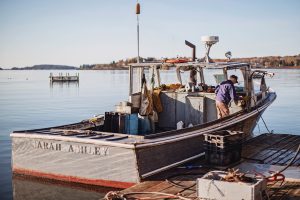
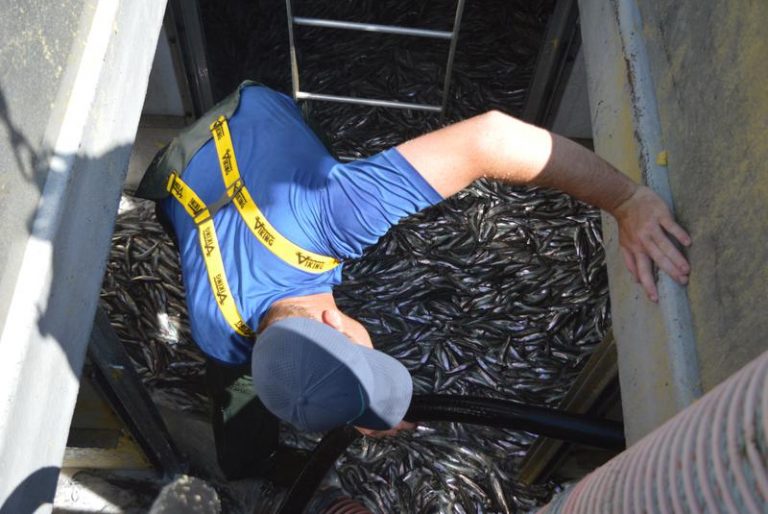
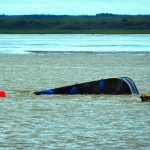
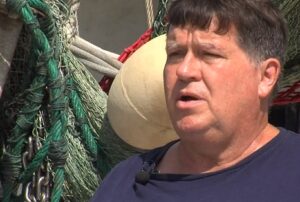
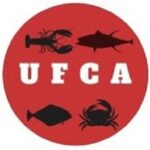
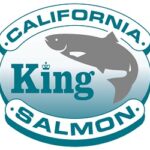




Commercial fishing industry deserves greater appreciation
Share this post